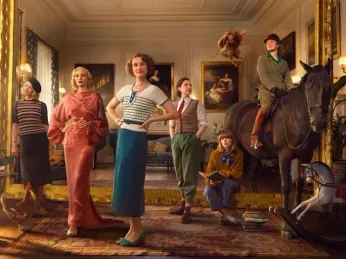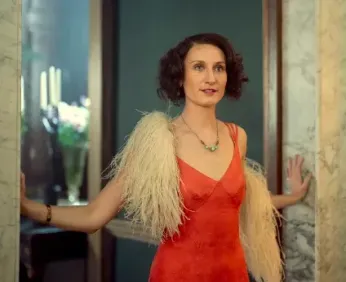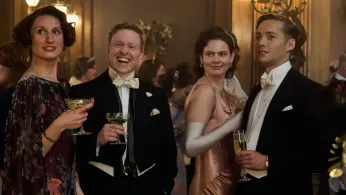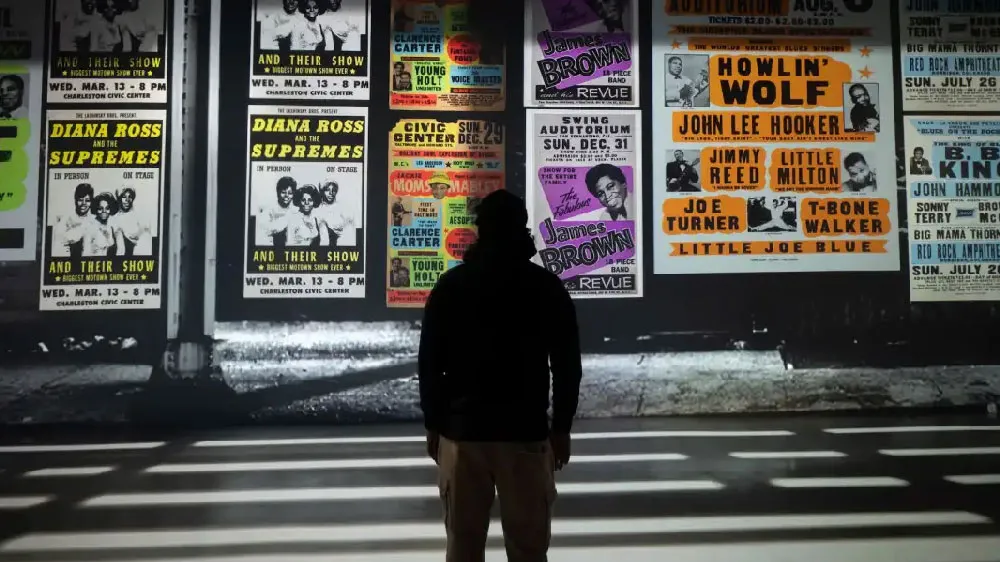
Jun 30
‘Outrageous’ – British Mitford family was stranger than fiction
Brian Bromberger READ TIME: 1 MIN.
The times are dire. Political structures are looking shaky and unreliable. People are being drawn to extremes. Families are being torn apart by different ideologies. People are looking for distractions so as not to engage or have responsibility to stop the horrors of the world.
No, I’m not talking about today, but rather the 1930s, the background for the scintillating, superb, scrumptious new six-episode series, “Outrageous,” having premiered on BritBox June 18. It’s based on Mary S. Lovell’s definitive biography, “The Sisters: The Saga of the Mitford Family (highly recommended).”
The infamous Mitfords were the aristocratic British daughters and one son of the second Baron Redesdale and his wife, Sydney Bowles, daughter of publisher and politician Thomas Gibson Bowles, who achieved fame and notoriety during the 1930s. They were the equivalent of the Kardashians, the self-promoting reality stars of their time, in that they dominated the media despite accomplishing very little.
“Outrageous” is a period drama, but we’re light years from “Downton Abbey,” and closer towards the titillating “Bridgerton,” zeroing in on the decadence, frivolity, and lavishness of English high society in-between-the-world-wars era.

Fractured family
Kicking off in late 1931, we’re introduced to the eldest Mitford child, Nancy (Bessie Carter), the series’ witty and keen narrator, who comments on the family’s dubious antics. She’s a budding novelist who incorporates experiences of the family into her storytelling, especially in her 1935 “Wigs on the Green,” a satire on British fascism, which drove a wedge between her and sisters, Diana and Unity.
Diana (Joanna Vanderham) is a glamorous gorgeous socialite who scandalously divorces her conventional wealthy husband, only to have a long-term affair with the womanizing British fascist leader Oswald Mosley (Joshua Sasse).
Next in line, sister Unity/“Bobo” (Shannon Watson) horrifies her family by relocating to Munich, Germany in 1934, becoming an ardent fan girl to the point of obsession with Adolf Hitler, after listening to Mosley. She lunched every day in Hitler’s favorite restaurant for a year waiting for him to notice her. She later wrote a virulent anti-Semitic letter to the Nazi newspaper “Der Sturmer” which caused an uproar when it was reprinted in British newspapers. Strangely, her family viewed her behavior not as a danger, but more an inconvenient nuisance, though in retrospect she probably bordered on being mentally ill.
The other main character is Jessica/“Decca” (Zoe Brough) who embraced Communism at a young age because of her passionate desire to change the world. She later ran off with her distant cousin Esmond Romilly (related to Winston Churchill) whom she met at a house party while he was recovering from illness. They traveled to Spain to fight in its civil war, resulting in her notoriety.
Lord Redesdale, aka Farve (James Purefoy), struggles with what his daughters are doing with their lives, but is terrible at financial management to the point that the family could lose their ancestral home. Lady Redesdale aka Muv (Anna Chancellor), is mostly concerned with setting up advantageous marriages for her daughters, with little success. Through her daughter Unity, she developed affection for Hitler, “a charming man who treated her daughter kindly.” She supported Germany during World War II, which ruptured her relationship with her husband, though they never formally divorced.
Feys and fascism
Gay supporting figures run throughout the story. Nancy had a five-year relationship with her younger friend Hamish Erskine (James Musgrave), patiently waiting for the closeted Erskine to propose marriage, unwilling to see or accept he was gay. Nancy’s best friend was Joss (Will Attenborough), gay and the grandson of Jewish refugees, who points out to Nancy the horrors behind rising fascism in Europe.
Then there’s younger sister Pamela (Isobel Jesper Jones) who weds the divorced physicist Derek Jackson in 1936, which feels like a betrayal to her youngest sister Debo (Orla Hill), who developed a teenage infatuation with Jackson. Not only was Jackson bisexual, but after they divorced in 1951, Pam went on to have long-term living arrangements with women.
Finally, there’s Tom (Toby Regbo), the only son, who while at Eton, had brief relationships with several men, including Nancy’s almost-fiancé Hamish Erskine. He never married and later dabbled in fascism.

Privileged politics
It is important to note that because of the economic and political upheavals in the 1930s, fascism and communism were not despised, but seen as viable alternatives to capitalism and democracy. Aristocrats attracted to Nazism hoped Hitler would bring back their long-gone world of wealth and privilege.
Still, the major theme of the series is that the sisters generally put their sibling affections for each other over their differing later hated political ideologies, meaning blood would always be thicker than water. Yet it’s also true that the extreme political times they lived in helped produce who these women later became. Some of the sisters’ extremism ultimately tears the family apart.
With its sex, scandal, politics, bereavements and betrayals, the series is jam-packed with drama, though a dry wit pervades throughout, as all the siblings are prime A exhibits of Evelyn Waugh’s Bright Young Things. They were London’s bohemian aristocrats and socialites, who threw flamboyant parties, drank heavily, and used illicit drugs. Nancy was friendly with Evelyn in real life.
A wild unruly spirit pervades throughout the series. None of the daughters were prim, proper, or well-behaved by the traditional standards of their era. But they had style, panache, fearlessness, and were trend setters. These strong-willed women were unwilling to conform, so were ahead of their time, rebelling against the traditions into which they were born.
They grew up thinking society was not going to tell them what to do nor could anyone say no to them (not even their parents). It never seemed to occur to them that they might be wrong. They were confident, no doubt due to their privileged upbringing, courageous in spite of abhorrent political views. They were never victims and created their own lives.
The acting by everyone is top-notch, though Carter, who guides us through the story, is the real standout. Of course, the costumes and production design are splendid, yet reflecting the Mitford’s impoverished gentry and shabby chic settings, though there’s no shortage of lavish palatial houses, but done realistically. Fascinatingly, the series executive producer is Oswald Mosley’s great-grandson’s Matthew Mosley, who doesn’t sugarcoat his despised relative.
“Outrageous” is not to be missed, worth a free seven-day trial of Britbox to catch the series. It has a breezy tone yet leaves the viewer slightly on edge, as you’re never sure what will happen next. The plot ends in 1937, so we can only hope it will be renewed for a second season, since its parallels with our current political situation are rather uncanny.

